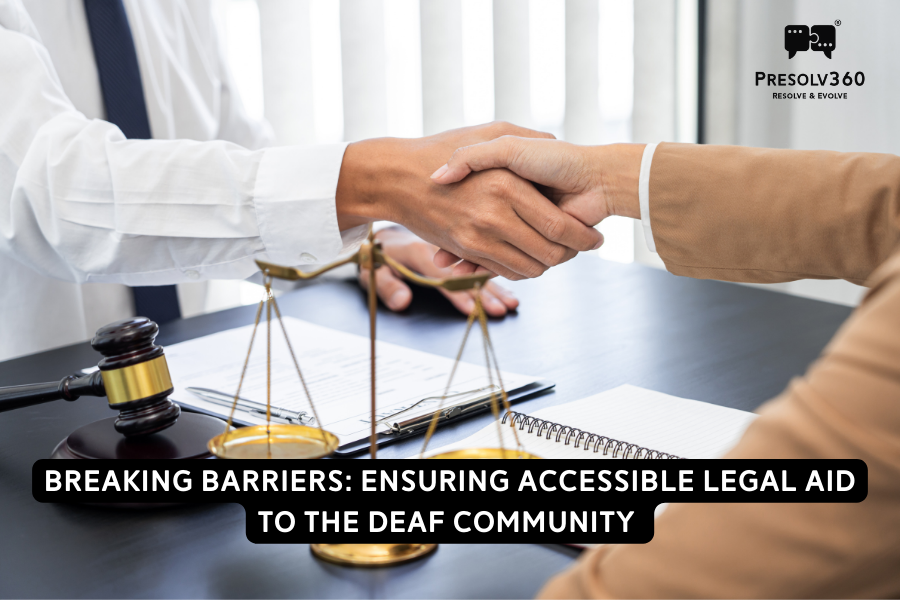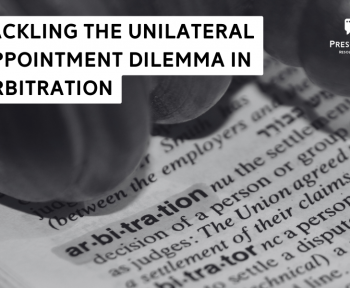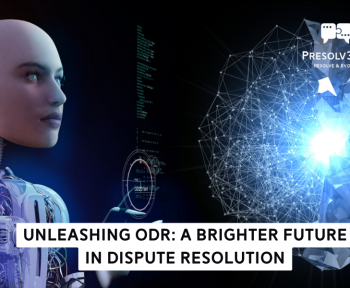By Vilasini Pollisetty
In a world with diverse cultures, languages, and abilities, the pursuit of justice should be a universal right. Across the world, societies are working towards recognizing and addressing the unique needs of individuals with disabilities. On September 23rd, the United Nations observed the International Day of Sign Languages. It was a clarion call to recognize the crucial role these languages play in facilitating communication for the deaf community. And also highlights the persistent challenges that hinder full accessibility and inclusion within the legal system, particularly for the deaf.
The Importance of Accessible Legal Aid for the Deaf
Accessible legal aid is a fundamental human right that should be available to everyone, regardless of their abilities or disabilities. For the deaf community, this right is very crucial. Attempting to steer through a complex legal system without the ability to hear or speak can lead to serious injustices.
Fortunately, both the Government of India and private organizations have recognized the importance of addressing these challenges. And have taken commendable steps to ensure that the deaf community can access the justice system effectively.
Paving the Way for Accessibility
The Government of India, through various initiatives, has demonstrated a commitment to making legal aid more accessible to the deaf. One such initiative is the National Programme for Prevention and Control of Deafness, launched in 2008. Its goal is to empower deaf individuals to lead economically and socially productive lives by 2030.
Another noteworthy initiative is the establishment of the Indian Sign Language Research and Training Centre (ISLRTC). This recognition of the importance of sign language is a major step in empowering the deaf community. Since sign language is their primary form of communication.
Section 12 of the Rights of Persons with Disabilities Act, 2017 Act mandates that the Government in collaboration with the National Legal Services Authority (NALSA) and the State Legal Services Authorities (SLSA) takes necessary steps to ensure persons with disabilities, including the deaf, can access courts and tribunals.
In February 2023, the Supreme Court Committee on Accessibility announced that it was inviting suggestions from people in the legal profession and persons with disabilities on measures that could be implemented to ensure that the courts are accessible to persons with disabilities including deaf individuals.
All these changes are indicative of an increasingly accessible regulatory environment for people with hearing disabilities. The private sector, particularly online dispute resolution (ODR) service providers, has also played a crucial role in ensuring accessibility. ODR providers recognize the importance of integrating Indian Sign Language interpretation services within their processes for deaf individuals involved in legal disputes.
Legal Precedents: Upholding Deaf Rights in Court
Legal precedents have been set to uphold the rights of the deaf community in India. In the case of National Association of the Deaf Petitioner vs. Union of India (2011). The Delhi High Court issued an order directing the Delhi High Court Legal Services Committee to identify interpreters to assist deaf individuals in court proceedings. This decision emphasised the need for accessibility within the legal system.
The Supreme Court, in State of Rajasthan vs. Darsjam Singh Alias Darshan Lal (2012), acknowledged the evolving perspective regarding deaf and mute individuals as witnesses and allowed witnesses who cannot verbally communicate to provide their testimony through writing or sign language with the assistance of a sign language interpreter. Section 119 of the Indian Evidence Act of 1872 allows witnesses who cannot verbally communicate to provide their testimony through writing or sign language in open court.
We recently also saw the first instance of a deaf-and-mute lawyer being allowed to use a sign language interpreter to argue a case in the Supreme Court.
A Continuing Lack of Awareness
However, despite these judgements and legal precedents, the on-ground reality remains largely unchanged. Many people with hearing disabilities, especially in Tier-II and Tier-III cities and villages, are unaware of sign language and its benefits. Petitions to recognize Indian Sign Language as an official language under the Eighth Schedule of the Indian Constitution have been undertaken, but there is still a pressing gap that requires attention.
Mr. Avnish Kumar Awasthi, from the Ministry of Social Welfare, in an interview pointed out that a lack of knowledge of sign language leads to deaf individuals dropping out of the education system and being unable to benefit from government job quotas meant for them. He advocates for compulsory sign language training for teachers to ensure that deaf students can study alongside other children in regular schools. Such initiatives are critical for creating a more inclusive society.
The Way Forward for Legal Aid
The Government and the private sector have taken initiatives that are promising. Much work remains to be done. One significant step forward would be the development of a universal sign language that can bridge linguistic gaps within India’s diverse deaf community. Such a standardized sign language would ensure that the deaf can communicate seamlessly across regions, enhancing their ability to access legal services.
Furthermore, the creation of a specialized legal dictionary in sign language could be a game-changer. This resource would facilitate the understanding of complex legal terms and processes. Enabling the deaf community to navigate the legal system with confidence. The ISLRTC has already begun this process and can collaborate with private players in the industry to further this initiative.
As we celebrate the progress made in making the legal system accessible to the deaf. We must recognize the importance of continued efforts to break barriers and ensure that every individual, regardless of their abilities, can fully participate in legal proceedings. The country’s judicial system has marginalized people with hearing disabilities for a long time now. It’s now time to take concrete steps to bring them into the mainstream of access to justice.
About the Author
Vilasini Pollisetty is the Project Lead – Hear The Difference at Presolv360. Reach out to her at vilasini@presolv360.com.




